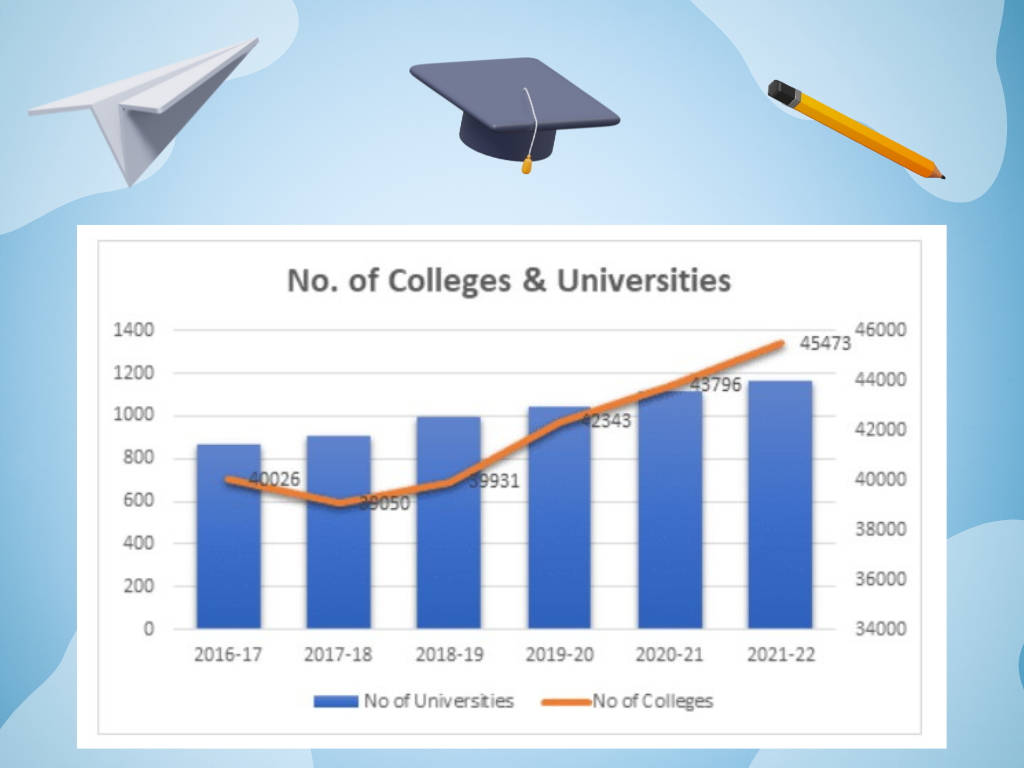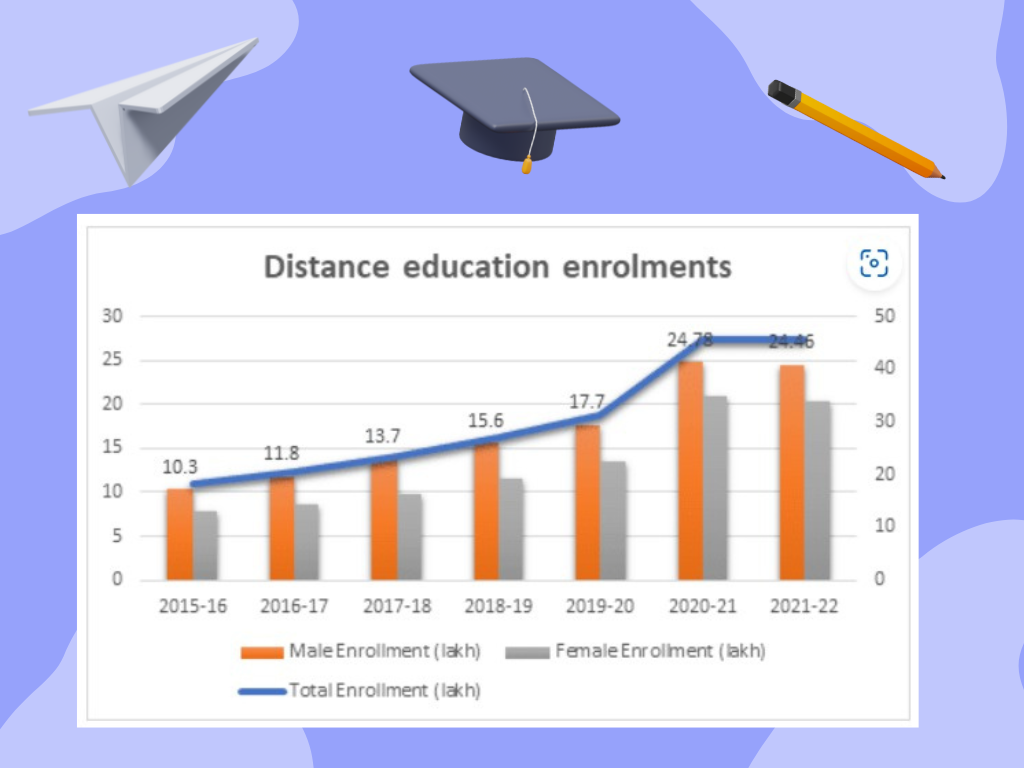The place of education in Indian society has always been honored. We as a nation has come a long way in our journey of Indian Higher Education. And the achievements India has made are noteworthy, especially in the sector of technology. Let’s look at its brief history and the future ahead.
If you look at the CEOs of the best tech companies today whether Satya Nadela of Microsoft, Sundar Pichai of Google, or Shantanu Narayan of Adobe, they are all organic brand ambassadors of India’s Higher Education System.
Although it was not always like this, we have had our challenges as well. Vocational education has always been side-lined by our policy makers, until very recently. By Vocation I mean our primary occupation.
Last three governments have given the much-needed attention in the form of Skill India. Moreover, legislatures like National education policy (NEP) 2020 is going to prove a steppingstone for our higher education. We will discuss about NEP 2020 ahead.

As per All India Survey on Higher Education (AISHE) report, the country boasts an impressive count of over 45,000 colleges and 1168 universities.
Now let me take you through some of the Opportunities & Challenges facing Indian Higher Education System.
Indian higher education system is going through a sea change never seen before. We have been reaping the benefits of the freedom given to educational institutions during the second National Education Policy in 1986.
Our higher and respected institutions like IITs, IIMs etc. have survived the covid 19 pandemic. In fact, it will not be an exaggeration to say that some of the most competent amongst these have created new streams of revenue. Earning them even more respect.
The higher education system today has multifaceted challenges. Most prominent amongst these being;
- The big divide between what is taught to our students and what the industry needs.
- Lack of quality faculty.
- Employability of students.
- Lack of attention given to research.
Well all is not cloudy for our country’s higher education. There is a Silver lining which is the National Education Policy 2020
The National Education Policy is a big step in the right direction. It will open new arenas for our Higher Education. Some of the key features envisioned in this policy are;
- Multidisciplinary Learning – You can now learn Arts with Physics.
- 100 % FDI in Education – You will see some of the best Universities of the world opening their Campuses in India. Not only this you will see IITs opening offshore campuses in middle east and other parts of the world. So Indian education is about to go global. Isn’t that a proud feeling.
(This has already begun to happen. Deakin University Australia has already set up its IBC (International Branch Campus in Gift City India). Even our IITs has opened their Campuses in UAE)
- 4-year Degree with exit points – You can drop after 1 year if you feel to change your area of study.
- Increase in budget for education to 6% of GDP.
You must also understand that NEP comes around every few decades. It is not the law, but a policy. Meaning NEP provides the guidelines to be followed but not mandatory to be executed. The above-mentioned changes may take years to implement as every state in India has the right to make laws pertaining to education. So, a good level of coordination between the Centre & State govts is needed to make this policy achieve its objectives.
There have only been two other NEPs prior to this one. First one was the NEP 1968, the second one in 1986.
With an increase in the budget to 6% of GDP, India is looking to redefine its higher education and there is no doubt that India will surely achieve most of the set objectives in its NEP 2020.
I hope you’re now aware of the present and future of Indian Higher Education.
Now let me take you to The Road Ahead for Indian higher Education.
The student community will be the beneficiary of all the above-mentioned reforms. The controlling authorities need to implement some rational, easy to follow through processes of checks and balances so that the quality is not compromised.
Talking of higher education without the mention of the Ed Tech sector will not be a full justice. Skill learning, upgrading companies like Coursera, Udemy, upGrad are redefining the entire segment of higher education. Even established private educational institutes like Narsee Monjee has established Global Access School for continuing education offering specialization in Business, Marketing, Human Resource and Financial Management. You can enroll with them and finish your post graduate diploma programs at a very reasonable budget.

It’s refreshing to see start-ups and established institutes competing for a share of this huge market. Such start-ups are really democratizing the flow of knowledge and skills. Millions will take the benefits from such ventures. Students and working professionals of this era have understood that a paper called degree is losing its relevance with time. Do you agree with me on this? Please let me know in the comments. The norm of the industry today is – If you have delivered result for yourself or for others you’ll be accepted. This is worth repeating a second time. This is so profound. It is a pure meritocracy world which we’re living in.
Even individuals like Siddharth Rajshekhar, Vishen Lakhani, Rajiv Talreja, Neil Patel, Russell Brunson, Amy Porterfield, who are real world doers are teaching their skills to masses. What an amazing time to be alive. I believe they are all in a way filling the loopholes that our traditional education has. We need to thank them for their service. And I’d also urge you to go ahead and take the courses with any of the name I took. I have been following a lot of real-world doers who are teaching and the names I took above are real and driven by mission to create a change.
Looking from this vantage point, the Higher Education of India is poised to go even higher. There by creating opportunities for one and all.
Thank you for reading. I’d love to read your comments below as well.

